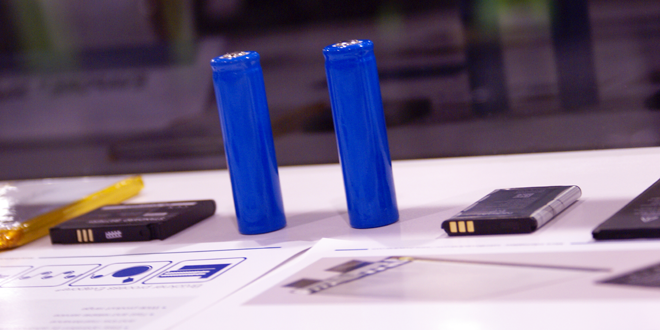Battery tech startup Lionano has announced an agreement with Cornell University’s Center for Technology Licensing (CTL) to develop and produce a “drop-in†anode material for Li-ion batteries.
The new material is a hollow-structured metal oxide that can substantially reduce the volumetric expansion of a conventional anode. According to Lionano, it can deliver a capacity of 900 mAh/g, and demonstrates superior stability over 2,000 cycles.
Cornell Professor Héctor Abruña, with whom Lionano has collaborated since 2013, and several co-authors described the anode material in a paper published in the journal ACS Nano.
“Transition metal oxides (TMOs) have attracted great attention as anode materials to replace the currently used graphite,†wrote Abruña and his colleagues. “The attractive electrochemical performance of TMOs in Li-ion batteries is based on a conversion reaction mechanism, which is different from the conventional Li+ intercalation/deintercalation processes.â€
“The enhanced electrochemical performance of hollow-structured nanomaterials is attributed at least in part to their high surface area and surface to volume ratio. It has been reported that the voids inside hollow nanoparticles can not only provide more space to accommodate volume changes during charge/discharge but also shorten the Li+ diffusion distance, which leads to smaller overpotentials and faster reaction kinetics at the electrode surface.â€
The next step is to commercialize the technology. “Lionano’s superior cathode and anode materials are an optimized replacement to existing batteries,†said Lionano CEO Dr. Yingchao Yu. “And we’re going beyond the lab bench, with a scalable means of production.â€
Source: ChargedEVs



